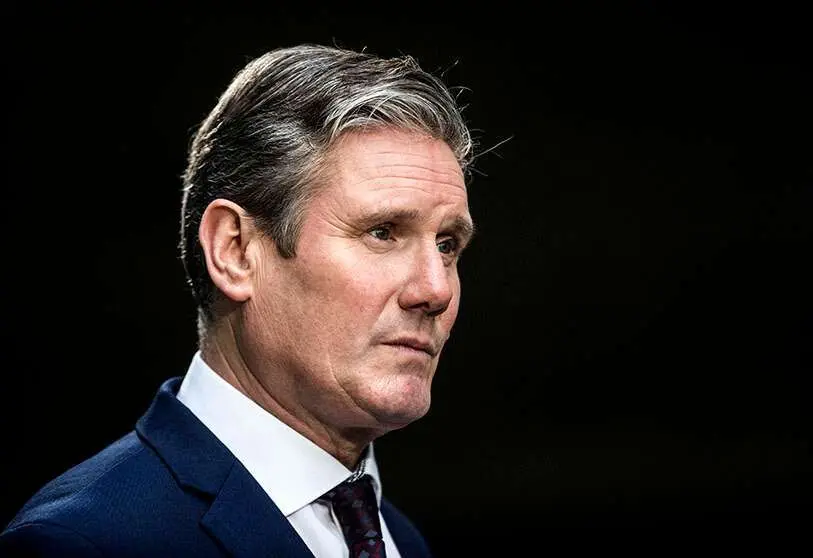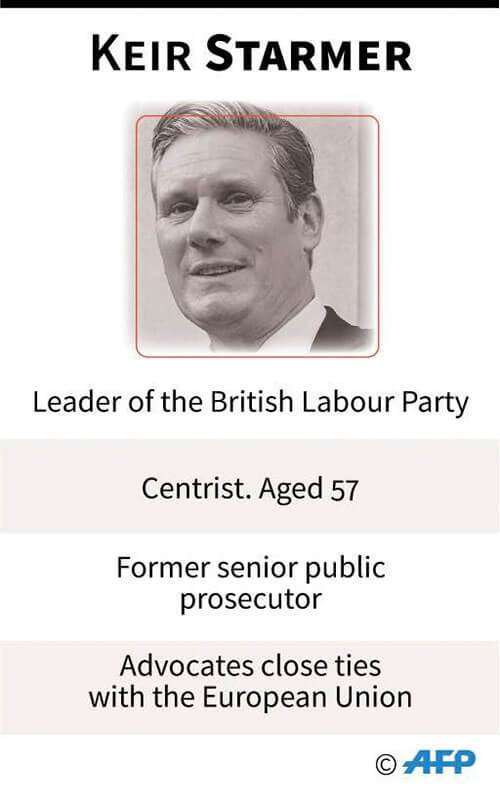Who is Keir Starmer, the new leader of British Labour

The new Labour Party leader will have his first conversation this week with Prime Minister Boris Johnson, who is teleworking since being discharged from hospital with his coronavirus infection. Keir Starmer is attracting a lot of attention in the UK these days. Everyone wants to know what his first steps are as the successor to the controversial Jeremy Corbyn, who has led Labour to its worst situation in almost a century with his progressive radicalism. He is the new hope of a century-old party, one of the oldest in Europe, which, apart from Tony Blair's three-term oasis, has been biting the dust in front of its conservative rivals over the last four decades.
The collapse of Labour in December's elections has already brought forward the changeover at the top. Corbyn won only 203 seats, left one in five supporters at the polls, and had to make do with 60 fewer seats than in the previous election process. One would have to go back to 1935 to find a worse result for the Labour Party, when Clement Atlee succumbed with only 157 seats in the Commons to PM Stanley Baldwin. He has only come close, in the scope of his failure, to Michael Foot in 1983, when he won 209 MPs to the Iron Lady. Even the traditional Labour electorate abandoned his party in the election that has elevated Boris, the irreverent.
Starmer was running against promises from the British left such as Rebecca Long-Bailey or Lisa Nandy in the Labour Party's primary elections, in which almost 800,000 members voted. But 56% of the votes in his favour made his victory very clear, giving him freedom to lead the opposition at Westminster.

Who is Keir Starmer? Born in Southwark Township, in the London metropolitan area, in 1962, he has made a name for himself. Coming from a working class family in South London, he studied at Leeds and Oxford universities to carve out a future in the field of law, specializing in human rights. He has been a Member of Parliament (MP) since 2015, when he won his seat in Holborn and St Pancras constituency. He is a more moderate politician, has been close to Corbyn while he has been head of the opposition, and has dealt directly with Brexit and immigration issues. He opted for a second referendum, a position that at one point in his political discourse he even defended his predecessor. But his vaguely moderate nature does not prevent him from already announcing that his battle horses will continue to be the demand for the abolition of university fees and the nationalisation of essential sectors, arguments that are generally rejected by British citizens.
Angela Rayner, the education expert on Starmer's team, will be his number 2. Born in Stockport, south of Manchester, in 1980, she is part of a new generation of island politicians who have been forged on the hard battlefield of the British labour market (she was a social worker). Her background as a trade unionist in Unison, the public service union, has not prevented her from always being seen as a moderate leader within the Corbyn Labour Party. That soft profile got her into the House representing the Ashton-under-Lyne district, and it's a "pedigree" that her new boss will now appreciate. From both Starmer's more orthodox and Rayner's more pragmatic philosophies, the line of action this party will take in the future must be drawn.
The Starmer-Rayner tandem has important challenges ahead. The most immediate ones are the health crisis and the economic recovery of a country that is going to enter a hard recession at the worst moment, when it takes its first steps without the EU's mattress. They will try to take advantage of the government's mistakes in relation to the virus, which have been not few, and will closely monitor the future relationship with Brussels. But without doubt the most important task will be the reconstruction of the Labour Party, which is in tatters after several years of disastrous management and results in line with a radical vision of the modern left.

